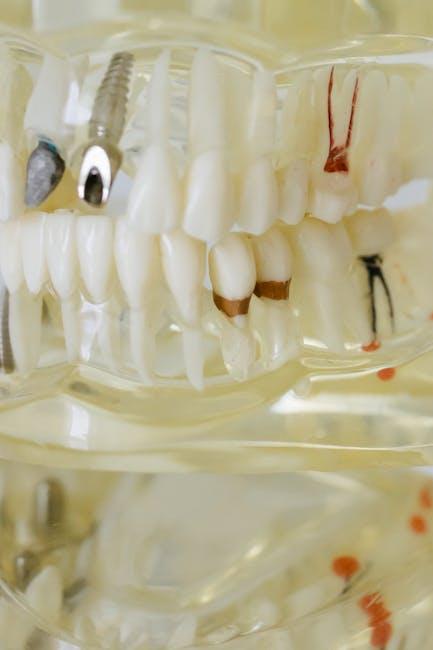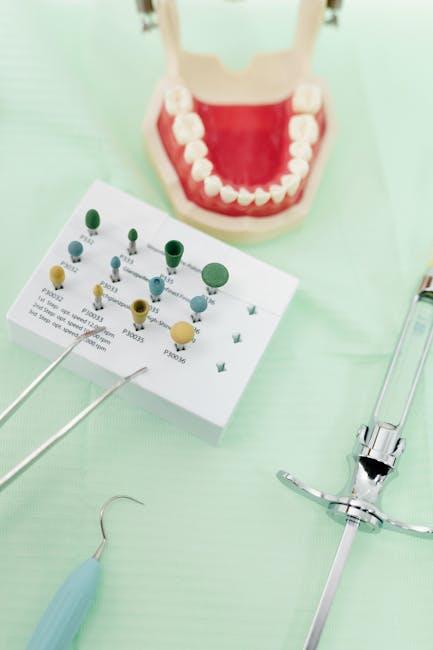
The Future of Dental Implants: A Narrative Review of Trends, Technologies, and Patient Considerations – Cureus
Dental implants have revolutionized restorative dentistry, offering patients a durable, natural-looking solution to missing teeth. As technology rapidly evolves, the future of dental implants is poised to deliver even more precise, less invasive, and patient-centric treatment options. In this narrative review, we explore emerging trends, innovative technologies, and crucial patient considerations shaping the landscape of dental implants today and tomorrow. Whether you’re a dental professional, patient, or curious reader, this comprehensive guide offers valuable insights into what lies ahead in implant dentistry.
Emerging Trends in Dental Implants
The field of dental implantology is evolving with exciting trends focused on improving patient outcomes and clinical efficiency. Key trends to watch include:
- Immediate Implant Placement and Loading: Minimizing treatment time, these protocols enable quicker restoration of function and aesthetics.
- Minimally Invasive Techniques: Advancements in surgical methods reduce trauma, swelling, and recovery times for patients.
- Customized Implant Solutions: Patient-specific implants tailored through digital planning and 3D printing for optimal fit and function.
- Use of Biomaterials and Growth Factors: Enhanced osseointegration through bioactive coatings and platelet-rich fibrin accelerating healing.
- Integration with Digital Dentistry: CAD/CAM technology, guided surgeries, and intraoral scanning are streamlining implant workflows.
Technological Innovations Transforming Dental Implants
Cutting-edge technologies are playing a pivotal role in shaping the future of dental implants. Some of the most impactful innovations include:
1. Digital Implant Planning and Guided Surgery
Computer-guided implant surgery improves precision by virtually planning implant position using 3D imaging and software. This approach lowers surgical risks and improves esthetic outcomes.
2. 3D Printing and Custom Implant Fabrication
3D printing allows for the creation of patient-specific implants and surgical guides, enhancing accuracy and reducing intraoperative adjustments.
3. Nanotechnology and Surface Modifications
Implant surfaces enhanced with nanocoatings promote faster and stronger integration with bone, potentially shortening recovery periods and improving longevity.
4. Smart Implants with Sensor Technology
The integration of biosensors into implants can enable real-time monitoring of implant health, detecting infection or biomechanical issues early.
Patient Considerations: What to Know Before Getting Dental Implants
While dental implants offer a transformative solution, patient-specific factors play a critical role in treatment success. Important considerations include:
| Consideration | Description | Patient Tips |
|---|---|---|
| Bone Quality & Quantity | Adequate jawbone density is essential for implant stability. | Maintain good oral hygiene, and consider bone grafts if recommended. |
| Overall Health Status | Systemic conditions like diabetes or osteoporosis may affect healing. | Consult your doctor and disclose medical history thoroughly. |
| Smoking & Lifestyle | Tobacco use negatively impacts osseointegration. | Quit smoking prior to and after implant placement for improved success. |
| Oral Hygiene Practices | Proper care prevents peri-implant disease and implant failure. | Follow dentist’s instructions on cleaning and follow-up visits. |
Benefits of Modern Dental Implants
Understanding the advantages can help patients feel more confident about choosing dental implants as a restorative option:
- Improved Functionality: Chewing and speaking functions closely mimic natural teeth.
- Long-Term Durability: With proper care, implants can last decades.
- Bone Preservation: Implants stimulate jawbone, preventing resorption common with dentures.
- Aesthetic Appeal: Custom crowns and prosthetics restore natural appearance.
- Enhanced Comfort: Unlike dentures, implants do not slip or cause irritation.
Case Study: A Glimpse into the Future of Implantology
Consider the case of Jane, a 45-year-old patient with a missing molar and moderate bone loss. Using a digital workflow, Jane’s dentist performed a CT scan, created a 3D model, and designed a custom titanium implant with nanocoated surfaces. Guided surgery ensured exact placement, and regenerative biomaterials accelerated healing. Jane’s implant was restored with a CAD/CAM crown, fitted perfectly on the day of surgery—a seamless, minimally invasive experience resulting in full function and aesthetics within days. This case exemplifies how integrating technology, patient-centered planning, and innovative materials can transform implant outcomes.
Practical Tips for Patients Considering Dental Implants
- Choose an Experienced Implantologist: Expertise influences success rates—seek credentials and patient reviews.
- Discuss All Medical Conditions: Be transparent about health to tailor implant planning and post-op care.
- Maintain Consistent Oral Hygiene: Adopt recommended routines to protect your investment.
- Prepare for Recovery: Understand the healing timeline and adhere to follow-up visits.
- Consider Costs and Financing: Inquire about treatment expenses, insurance, and payment options early on.
Conclusion
The future of dental implants is bright, driven by technological breakthroughs and a deeper understanding of patient needs. Innovations like digital planning, 3D printing, and bioactive materials promise faster, safer, and more personalized implant treatments. For patients, careful evaluation of individual health factors and commitment to oral care remain key to unlocking the full benefits of implant dentistry. As research advances and clinical practice evolves, dental implants will continue to enhance smiles and improve quality of life across the globe.
Stay informed and consult your dental professional to explore how the latest implant technologies can work for you. The evolving landscape offers hope for more efficient, comfortable, and long-lasting solutions that truly restore both function and confidence.


